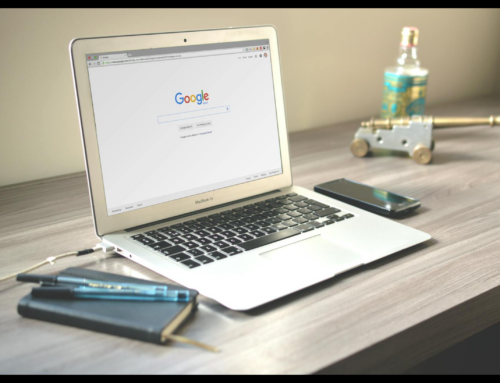Have you ever wondered why some people get job offers even without applying?
You’ll see them regularly on LinkedIn, maybe posting a work update, sharing knowledge, or simply talking about their experiences. That’s the power of personal branding. In today’s competitive job market, it’s not just about what you know – it’s also about how you showcase what you know.
So, what is personal branding exactly? It’s basically how you present yourself to the world, especially online. It includes your work, your values, your story, and your unique skills. Whether you’re a student, a working professional, or even running a business – personal branding helps people remember you.
Let’s understand this better by going through some common questions.

What is Personal Branding and Why It Matters
“First impression is the last impression” – we all have heard this, right? But in today’s world, that first impression often happens online. Whether someone is checking your LinkedIn, reading your blog, or going through your social media, they are forming an opinion. That’s where the role of personal branding becomes very important. It’s not just for celebrities or influencers – it’s for everyone who wants to grow in their personal and professional life. By simply sharing your knowledge, talking about your work, or posting your journey, you start building a personal brand without even realizing it, much like organic visibility growth seen in Metrobi Charlotte courier branding.
Let’s say you want to stand out in your industry. You don’t need to be the best in the world – you just need to be clear about what you do and who you’re doing it for. That’s called your value proposition. When you know your target audience and show up regularly with your content, slowly people start to trust you. This trust is the power of a strong personal brand. You can use platforms like LinkedIn to create a personal image that speaks for you. The more people see your work and thoughts online, the stronger your online presence becomes. And that is exactly the role of personal branding – helping people understand your value even before they meet you.
How can professionals build a strong personal brand online?
So you might ask – how do I even start building my personal brand online? Good question! It may seem like a big task, but don’t worry – small steps can go a long way.
Start with these basic things:
-
Be real and authentic – Don’t try to copy others. Show your true self.
-
Post regularly – Share your work updates, lessons you’ve learned, and industry news.
-
Engage with others – Like, comment, and support posts from your network.
-
Show your work – Projects, success stories, even small wins – everything counts.
-
Stay consistent – Keep your message and tone same across all platforms.
Here is what Tracie Crites, Chief Marketing Officer at Heavy Equipment Appraisal, says about this:
“Building a personal brand online starts with authenticity. Sharing your expertise, values, and achievements in a way that feels true to who you are helps create a connection with others. I always recommend focusing on quality over quantity like posting thoughtful insights, engaging with others in your industry, and showcasing your unique skills. I have used LinkedIn to share stories about how unbiased equipment appraisals impact communities, which has helped position both myself and my company as trusted leaders.”
Oliver Morrisey, Owner and Director of Empower Wills and Estate Lawyers, also gives some simple advice:
“Professionals can build a strong personal brand by showcasing their expertise and thought leadership. Sharing insights on estate planning, will disputes, or probate law through articles, videos, or webinars can establish authority in the legal field. Consistency in posting and engaging with your network is crucial for maintaining visibility.” Looking for some inspiration? Check out a few real-life personal brand examples!
How Personal Branding Builds Trust and Credibility
Trust takes years to build, seconds to break, and forever to repair. But in today’s digital world, trust can actually start with just one post or profile. Surprising, isn’t it? That’s the importance of personal branding. When you show up consistently with your thoughts, work, and values, people start to believe in you. That’s how the role of personal branding plays a big part in building your professional identity. Think about it – we all follow someone online whose words we trust, right? That’s what happens when you develop your personal brand with care.
Now you might ask, how does a personal brand help in real life? Well, here’s a short story-like example. A person regularly shares practical tips on digital marketing, keeps their social media profiles updated, and even has a personal website where they’ve posted their work and achievements. Over time, their audience sees them as a thought leader. Additionally, showcasing something like CPR Classes in LA can make you stand out further, signaling both competence and responsibility. That’s the power of creating a personal brand – it helps you build trust without selling anything. It simply shows who you are and what you stand for.
Here’s how developing a personal brand can build trust and increase your visibility:
-
Share real experiences, not just achievements
-
Be honest about your strengths and weaknesses
-
Define your personal purpose and values clearly
-
Use your personal strategy and style consistently
-
Keep your brand identity aligned with what you post
-
Take an online course to sharpen your skills
-
Improve your SEO by keeping your content searchable
When you start crafting your personal brand, it helps you communicate your own personal value to the world. And yes, personal branding isn’t about being fake or showing off. It’s about being real and open. For business owners, freelancers, or even job seekers, personal branding is the process that opens new opportunities. Taking a business management course can also enhance how you position yourself, giving you a clearer understanding of strategy, leadership, and communication – all key to building a compelling personal brand.It helps potential employers or clients know what makes you different – your unique value proposition. That’s why the role of personal branding is not just a statement – it’s a strategy anyone can use. And the best part? It all starts with you.
Is LinkedIn still the top platform for personal branding, or are there better options?
Now the next common question – should I only focus on LinkedIn, or is there something better?
The simple answer is – LinkedIn is still the most effective platform for professionals. But yes, depending on your field, other platforms can also play a role in the role of personal branding and help you grow your presence.
For example:
-
LinkedIn – Great for all professionals; job seekers, managers, experts, etc.
-
Twitter (now X) – Good for sharing quick insights and industry opinions.
-
Medium – Useful if you like writing long articles or thought pieces.
-
Instagram – More visual, good for creative fields like photography, design, etc.
-
YouTube – Best if you want to create video content and build a bigger audience.
Here’s what Tracie Crites thinks:
“LinkedIn is still an incredible platform for personal branding, especially for professionals looking to grow their network and share industry knowledge. That said, platforms like Twitter or Medium can work well for thought leadership, while Instagram can highlight your personal side, particularly for visual industries. Choosing the right platform depends on where your audience is and what you want to share.”
And this is what Oliver Morrisey adds:
“LinkedIn is still the top platform for legal professionals. Its professional focus makes it ideal for sharing case studies, legal updates, and career achievements. However, niche platforms like legal forums or even YouTube can also be effective for reaching specific audiences, such as clients seeking legal advice.”
Can personal branding affect career growth and job opportunities?
This is maybe the most important question – does personal branding really help in getting jobs and better opportunities?
The answer is 100% yes. When you have a strong personal brand:
-
Recruiters can find you easily.
-
Clients and companies may contact you directly.
-
You may get invited to speak at events or podcasts.
-
People remember you, even if they don’t know you personally.
A good personal brand builds trust. And trust brings opportunities.
Tracie Crites strongly supports this. She says:
“A strong personal brand absolutely affects career growth. It helps potential employers, collaborators, and clients see your value before you’ve even met them. I have seen it lead to new opportunities, whether that’s a new role, a partnership, or speaking engagements.”
And here is what Oliver Morrisey says from the legal point of view:
“Personal branding significantly affects career growth and job opportunities. A strong brand can lead to referrals, promotions, or even offers from other firms. For example, a lawyer known for their expertise in estate disputes might be approached for high-profile cases or invited to contribute to legal publications.”

Creating a Strong Online Presence
“Out of sight, out of mind” – this old saying is quite true in the digital world. If people can’t find you online, how will they know your skills or what you stand for? Your visibility also includes protecting your digital identity, and using a reverse image search helps ensure no one else is using your pictures or content without permission. That’s where the role of personal branding really shines. A strong personal brand can help you show up in the right places and be seen by the right people. Your online presence becomes your voice – even when you’re not in the room. When you clearly express your personal values, interests, and goals, people start to connect with your story. It’s not just about looking good online, it’s about staying real and meaningful in the modern business world.
Let’s say someone is building your brand to grow in their field. First, they start by writing a personal mission statement that captures their goals in both career and life. Then, they spend time defining your brand – what makes them different and what they stand for. Slowly, they build a solid social media presence by sharing useful content, connecting with like-minded individuals, and staying active. The role of personal branding becomes clear here—it helps them stand out, attract new career opportunities, and even open doors in the world of management in business.
Here’s what experts suggest to do:
-
Use the theories of branding to understand your own unique personality
-
Apply the theories of branding in simple ways – like storytelling and visuals
-
Create content that reflects your personal value proposition
-
Build a personal and professional identity that’s honest and consistent
-
Work with a digital consulting agency if needed for direction
-
Remember, your personal brand helps you connect with real people
-
Keep your communication clear so it can also communicate your personal brand
As Harvard Business School senior lecturer Jill Avery says, personal branding is a strategic practice that helps people lead in the modern business world. The role of personal branding is to help you stand out, build trust, and create a lasting impression in your field. So, if you want to rise above the crowd, this is your sign to start working on your personal brand today!
How to Start Building Your Personal Brand Today
When it comes to the role of personal branding, that first step can be as simple as deciding what you want to be known for. Let’s imagine someone who wants to grow as a writer. They start by noting down their identity and values—maybe honesty, creativity, and simplicity. Then, they think about their value proposition about the difference they can bring. Maybe it’s their ability to explain difficult things in simple words. When you understand how to best express that, you’re already on the right path to personal branding.
Next, they choose a few social media platforms where they can share ideas and connect with other business professionals. They start writing short posts, join groups, and slowly build a voice. By putting in the effort regularly, they begin to stand out in a crowded space. The perceptions of you may change with time, but being real and consistent helps build trust. If you’re confused, even joining an online learning community or exploring seven courses for leading can help you learn the basics. This is where the role of personal branding truly comes in – guiding how you present yourself and grow your professional identity online.
Here are a few easy tips to get started:
-
Focus on your niche – don’t try to be everything for everyone.
-
Share real-life examples to make your story relatable.
-
Aim to establish yourself as a thought leader in your field.
-
Learn from experts like school senior lecturer Jill Avery, who say it’s especially important to be clear and consistent.
-
Know that a personal brand can open doors to new roles and collaborations.
-
Keep in mind that branding can have a big impact on your professional life.
-
Practice how to best express and communicate your skills and goals.
So, if you’re thinking it’s too late or too early to build your personal brand, it’s not. The role of personal branding today is more powerful than ever – all it needs is a little time and intention.

